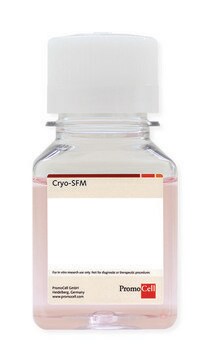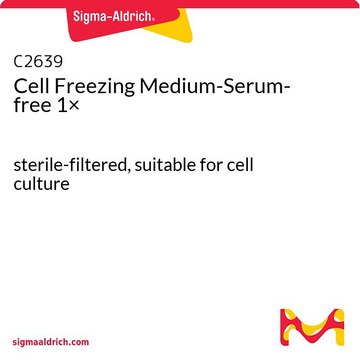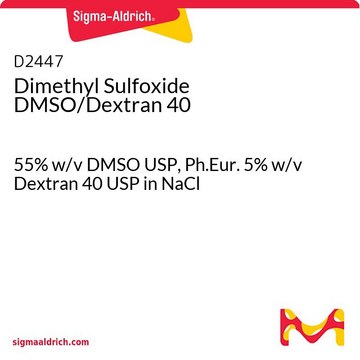C9249
CryoSOfree™ DMSO-free Cryopreservation Medium
Synonym(s):
cell freezing medium
Select a Size
Select a Size
About This Item
Recommended Products
form
liquid
Quality Level
greener alternative product characteristics
Designing Safer Chemicals
Learn more about the Principles of Green Chemistry.
sustainability
Greener Alternative Product
technique(s)
cell culture | mammalian: suitable
cryopreservation: suitable
greener alternative category
, Aligned
shipped in
wet ice
storage temp.
2-8°C
General description
Application
Features and Benefits
- Preserves pluripotency of stem cells
- Low cytotoxicity
- Chemically defined, serum free, protein free
- Ready to use
The following cell lines have been recovered at ≥90% following cryopreservation with CryoSOfree:
L929, KB, MC3T3, B16F1, Colon26, CaCO2, HT1080, MG63
Preparation Note
Legal Information
signalword
Warning
hcodes
Hazard Classifications
Eye Irrit. 2 - Met. Corr. 1 - Skin Irrit. 2
Storage Class
8A - Combustible corrosive hazardous materials
wgk_germany
WGK 3
flash_point_f
Not applicable
flash_point_c
Not applicable
Choose from one of the most recent versions:
Already Own This Product?
Find documentation for the products that you have recently purchased in the Document Library.
Customers Also Viewed
Related Content
Introducing a new cell therapy demands optimal performance in upstream and downstream processing, process development, testing, and manufacturing. World-class products and partners are critical to success, speeding advancement of therapeutics that are effective, safe, and affordable.
Our team of scientists has experience in all areas of research including Life Science, Material Science, Chemical Synthesis, Chromatography, Analytical and many others.
Contact Technical Service









